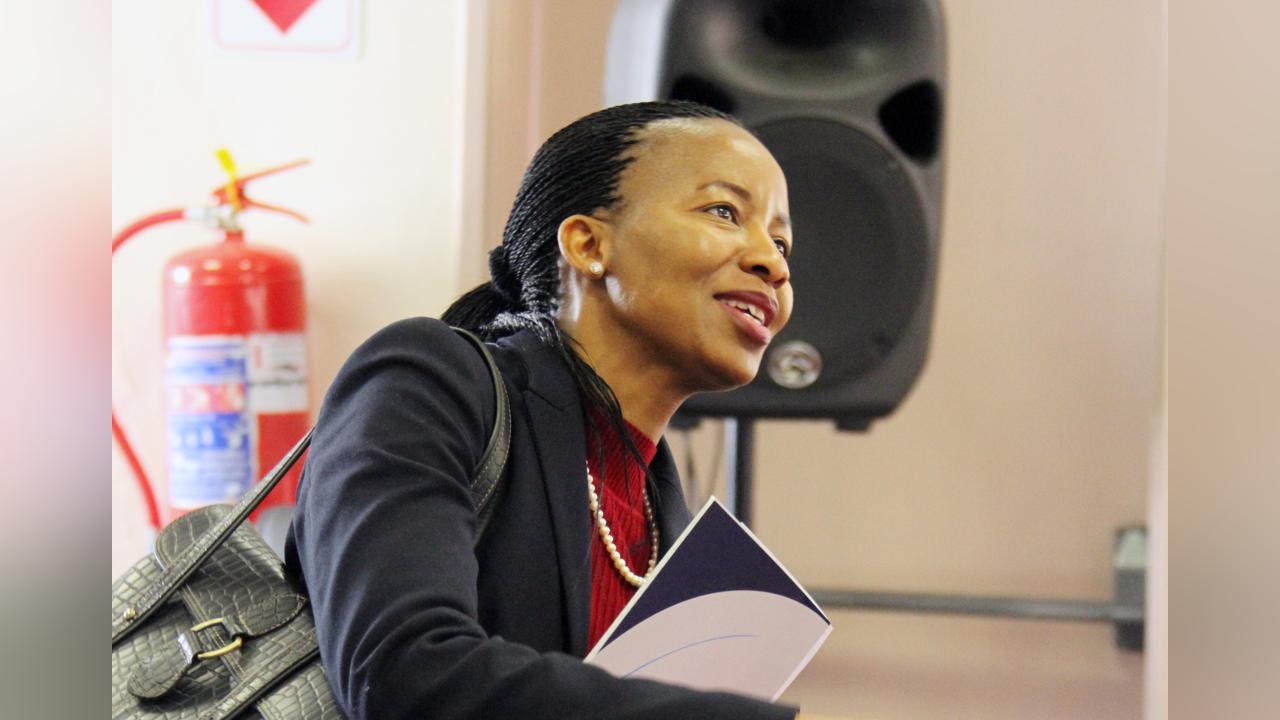Africa-Press – Botswana. Ministry of Agriculture deputy permanent secretary, Livestock Farming, Dr Boitumelo Mogome-Maseko has implored heads of mission to support local small stock industry by striking relevant partnerships abroad.
“We want to have strategic alliances, with local and international institution,” said Dr Mogome-Maseko, when addressing 40 envoys during a tour of Lobu Smallstock Farm on Monday.
The target is to transform Lobu into a smart farm by adopting smart agriculture technologies and employing best agricultural practices in the small stock sector, she said highlighting that government also wanted to turn the farm into a training institute with accredited programmes and trainers so that it could train even farmers from outside Botswana.
Therefore, she implored heads of mission to explore collaborations with international institutions to develop the farm further to enable it to run as a sustainable institute.
She said the farm, which was established in 1978, was currently doing well in terms of producing stock with superior genetics for sale to farmers to improve their flock.
So far she said since 2018, they held auction sales, where the farm sold 1 767 small stock of superior genetics and 18 white Brahman bulls. She divulged that the Friday action sale sold 401 small stock, which included 56 studs and 101 rams, fetching close to P1 million in a day.
She added that the farm had 154 bucks and 273 rams that were ready for auction sale.
Dr Mogome-Maseko said out of all government’s breeding farms in the country, Lobu was the only one that had stock ready for sale, adding that plans were underway to take some animals to Mantshwabisi and Impala farms to enable Batswana in other parts of the country to access good genetics.
Sharing plans for the farm, she said the 10 800-hectares facility had great potential for economic diversification and the plan was to have half the farm continue with small stock rearing while the other half would be sub-divided into an artificial insemination centre and three private small stock farms.
Dr Mogome-Maseko said the farm, which boasted premier breeds of Boer Goat, Savannah, Saanen Goat, Dorper, Meat Master, Damara and Swakara sheep, currently had 2 506 sheep, 1 688 of which were studs and 1 284 goats, 386 of which were studs.
She said studs were endowed with superior genetics selected by breeding societies. Furthermore, she said, there were 81 white Brahman cattle.
She however decried insufficiency of the farm borehole, adding that solar hydro panels produced 500 litres of drinking water per day and that the farm was powered from South Africa, which supply was unreliable. All was not lost though as Dr Mogome-Maseko told the envoys that as the staff had come up with a small stock digitisation strategy to upgrade infrastructure.
“We are in the process of drilling more boreholes and desalinating the water”.
She highlighted that the plan was to also betuminise the gravel road from Khuis to Lobu, employ the use of drones and robotics, use modern technology for fodder production, employ computer interfaced production, as well as use GPS to track animals.
Further, she said the ministry harbored plans to have online auction sales, introduce smart production and management systems, climate smart and sustainable agriculture.
“We have ordered some drones. We want to have technology-enabled fodder production. We want to have virtual classes and conferences as well as remote support systems,” she said.
Speaking on behalf of Botswana envoys, Botswana ambassador to China, Dr Batlang Serema expressed delight at visiting Lobu Smallstock Farm, which he acknowledged as one of Botswana’s national priority projects in the national transformation agenda.
He said Lobu had been deteriorating over the years, when in 2018, President Dr Mokgweetsi Masisi made a deliberate move to accelerate the transformation of the small stock sector coordinated by MoA with the participation of non-government stakeholders.
He said the objective of the farm was to increase global competitiveness of Botswana small stock and transform Tsabong District into a small stock hub to enhance profitability of operations there of, thus increasing the contribution of the sector to economic growth and diversification.
He said the notable related development was the construction of the yet-to-open Tsabong Multispecies Abattoir, which initiative was aligned to the component of value chain development in the Reset and Reclaim Agenda.
Ambassador Serema said the visit was important, more so that it partly addressed the realisation of their convention’s theme; Advancing Botswana Towards a High Income, Inclusive and Knowledge-based Economy Through Strategic Global Engagements.
Ambassador Serema said envoys looked forward to gaining deeper understanding of the operational model being implemented at Lobu and learning about any existing gaps that required concrete concerted actions to resolve.
He appreciated that Botswana envoys would, from now on, be armed with up-to-date information that would inform identification of appropriate development partners with whom memorandums of understanding could be pursued to address specific issues.
For his part, MP for Kgalagadi South, Mr Sam Brooks encouraged envoys to share the Lobu story with the international community and sell Kgalagadi as a small stock hub.
He called for some of the borders in the district to be commercialised in order to enable communities to benefit from value chains brought about by small stock development.
For More News And Analysis About Botswana Follow Africa-Press






